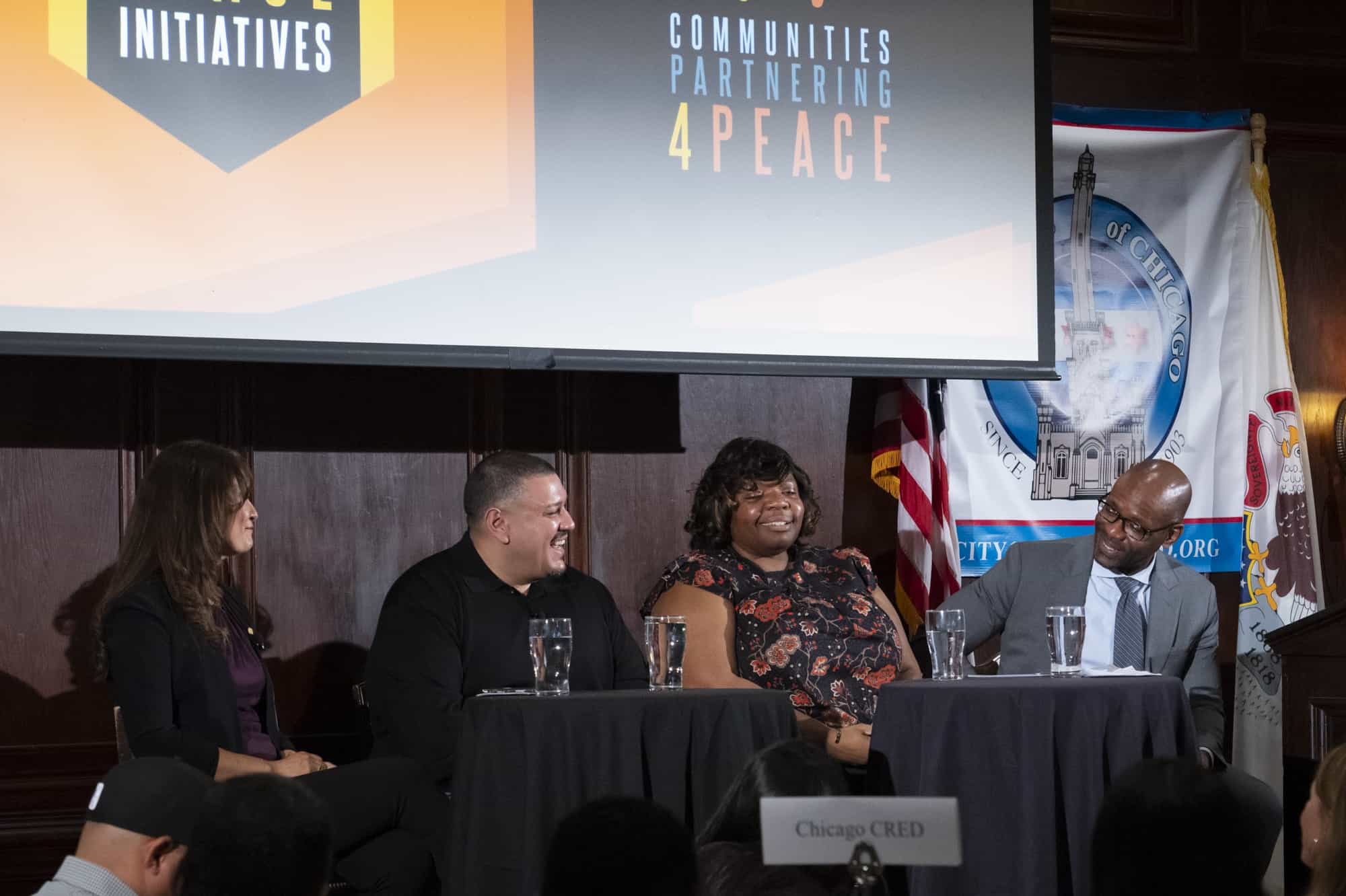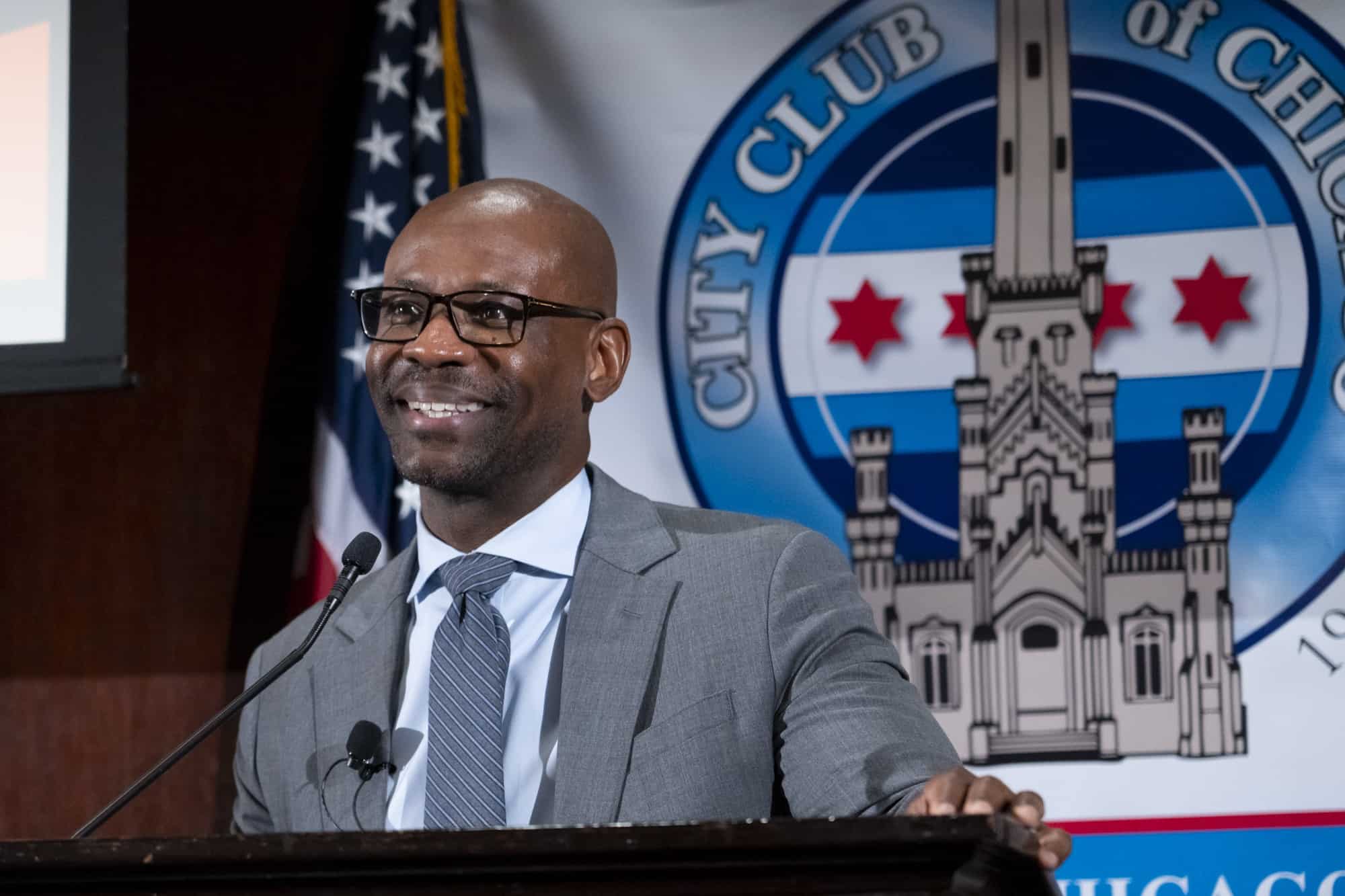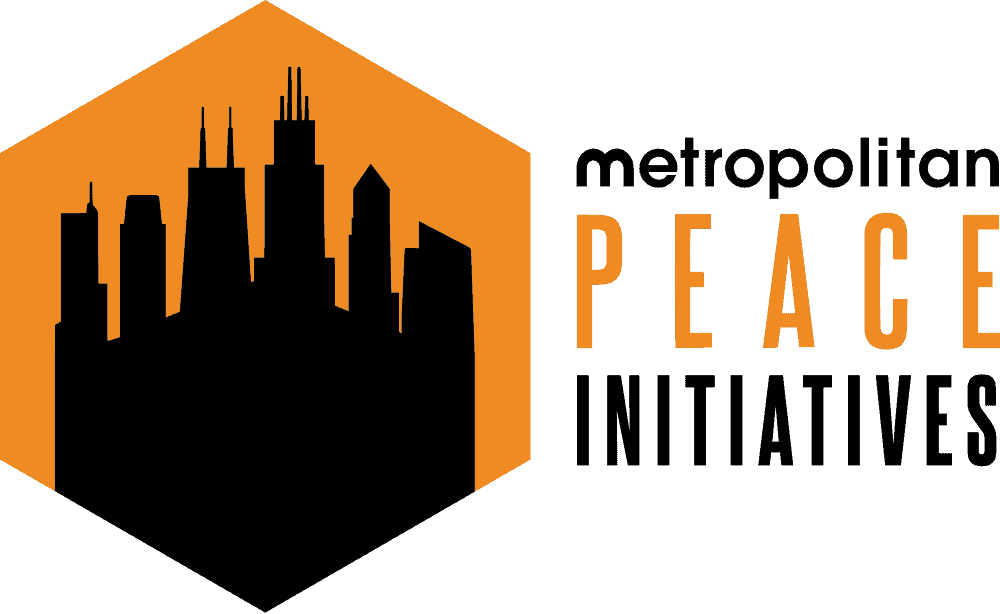MPI & CP4P at City Club of Chicago: Community Violence Intervention is Saving Lives

Data shows that as of August of this year, 12 of the top 20 communities receiving comprehensive community violence intervention (CVI) services have seen a 60 percent decrease in gun violence when compared to the same period last year, said Metropolitan Peace Initiatives (MPI) and Communities Partnering 4 Peace (CP4P) leaders during an important panel discussion hosted by The City Club of Chicago Tuesday, October 31, 2023.
Watch the full discussion, “Community Violence Intervention: How the Metropolitan Peace Initiatives & Communities Partnering 4 Peace Are Saving Lives and Reducing Gun Violence in Chicago’s Highest-Risk Neighborhoods” here.
“It’s also important to note that during Labor Day weekend this past year we had seven shootings versus 18 the year before,” said MPI Executive Director Vaughn Bryant.
Attended by civic leaders, community stakeholders, business leaders, government leaders and engaged CVI organizations, the sold-out program showcased MPI’s successful data-driven approach to reducing gun violence through the CP4P coalition of 13 community-based organizations in 27 high-risk neighborhoods.
Moderated by Bryant, panelists included Angela Hurlock, Executive Director of Claretian Associates; Jesus Salazar, Metropolitan Peace Academy (MPA) Senior Field Manager; and Soledad McGrath, Executive Director and Research Professor for Northwestern University’s Center for Neighborhood Engaged Research & Science (CORNERS).

As Bryant explained, CVI is a public safety model that uses evidence-based strategies to reduce gun violence through tailored community-centered initiatives that include case management, victim services, behavioral health, workforce development, legal aid, community events, and most importantly, street outreach.
Salazar, a 12-year veteran of street outreach work in Little Village, shared with the audience what a day as an outreach worker looks like.
“It’s 24-7,” said Salazar. “People reaching out to you on a daily basis – even on your days off. People reach out to me for specifics: individuals who might be looking for a job, individuals who might need diapers for their baby, individuals who might need food in their fridge. Outreach is being that pillar in my community, that person that provides all those things and serves as that bridge that connects people to different resources.”
Hurlock likened the way violence can spread through a neighborhood to a cold, while also stressing the role outreach workers, many of whom have been justice-involved at one point in their lives, play in helping communities get better.
“Just like you can catch a cold, if you’re prevalently around someone with a virus, you might attract that virus. If you’re constantly in an environment where there’s violence going on, you might learn violent activity. But just like you can learn that violent activity, you can unlearn that violent activity. The individuals that are taking part in it, who are not only portraying the violence but also being victimized by the violence, they didn’t just drop out of the sky, they are our community members. And so just like they’ve been part of the challenge, they can be part of the solution, as well,” said Hurlock.
Recent data shows that thanks to the efforts of CVI leaders like Salazar and Hurlock, the community-centered approach to public safety is working. A 2023 CORNERS research brief shows CP4P’s gun violence prevention work resulted in 383 fewer non-fatal shootings and homicides from the start of the program until December of 2021.
“This study is important because it’s not just those individual lives that were saved, but it’s the network around them, the mothers, families and siblings that are spared,” said McGrath.
CORNERS research concludes that CP4P partners are reaching the right people, said McGrath, whose research harnesses the power of “network science” to help better understand Chicago gun violence and its concentration within small networks.
She says CP4P participants are three times at higher risk of gun violence than individuals in their neighborhoods, and four times more at risk than Chicago as a whole.
“If you are a part of a network of individuals that have experienced victimization, your risk of victimization, not surprisingly, shoots up dramatically,” McGrath said. “The science is really allowing us to better understand gun violence and teaching us how we can reach the young people who are at highest risk, to provide the comprehensive and holistic services that they need in order to be able to help individuals come out of these situations.”
Tuesday’s program was the first of what will be a series of MPI/CP4P events hosted by the City Club of Chicago in the coming months.
Watch the full discussion, “Community Violence Intervention: How the Metropolitan Peace Initiatives & Communities Partnering 4 Peace Are Saving Lives and Reducing Gun Violence in Chicago’s Highest-Risk Neighborhoods” here.
